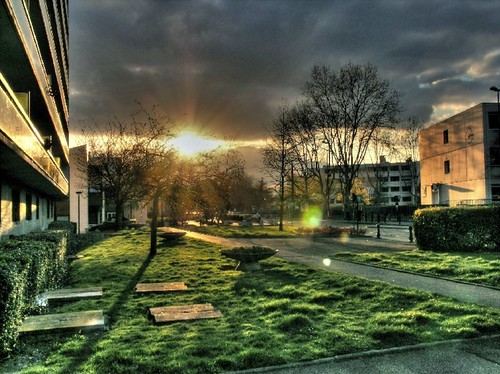The Outquisition
Posted by Big Gav in end of suburbia, outquisition, suburbia, tools
Alex Steffen has a post on WorldChanging about a new "back to the land" style movement with a twist - taking tools to post-collapse America instead of the old hippie idea of going back to the land - and idea he dubs - The Outquisition. Assuming collapse is inevitable is a big assumption of course, and the original "back to the landers" seem to have failed almost utterly within a decade of their escape from the cities, so this idea has a few pitfalls to avoid.
The other night Cory Doctorow and I were talking over coffee, and we got going on an idea that's been rattling around in my head ever since.
We were talking about the slow-motion collapse here in America, the looming climate crisis,the futility of survivalism; and we began to play with the thought, what kinds of heroes would actually do some good for the communities that get hit hard?
Because if the ruins of the unsustainable are the new frontier, and if, as is already happening, the various economic and environmental transitions we face will leave many people unmoored from their familiar assumptions at the very least and, at the worst, cut loose from their jobs or driven from their homes, a huge number of people are going to need help forging new ways of life.
Even if we do a pretty decent job of hugging the curve, and bright green innovation brings prosperity and security to a lot of people in many regions, some others will still suffer from ecological shifts, political abandonment, economic collapse or some combination of all three. Unless things change dramatically, we have not seen our last Dust Bowl, our last New Orleans, our last Detroit. What do the people who are left trapped in degrading places, who don't get the green collar jobs, do?
And we got on this riff about heroes who got the paradox of the moment: that abandoned people and places are sometimes the ones who most need radical innovation; that, these days, new tools and models are practically scattered all over the ground, just waiting for people to pick them up; but that those who most need them are those who least know how to find them.
What would it be like, we wondered, if folks who knew tools and innovation left the comfy bright green cities and traveled to the dead mall suburban slums, rustbelt browntowns and climate-smacked farm communities and started helping the locals get the tools they needed. We imagined that it would need an almost missionary fervor, something like the Inquisition (which largely destroyed knowledge) in reverse, a crusade of open sharing, or as Cory promptly dubbed it, the Outquisition.
Imagine these folks like this passing out free textbooks, running holistic programs for kids, creating local knowledge management systems, launching microfinance projects, mobilebanking and complementary currencies. Helping rural landowners apply climate foresight and farm biodiversity. Building cheap, smart, quality housing for displaced people (not to mention better refugee camps), or an Open Architecture Network for cheap informal rehabs of run-down suburban housing. Hacking together DIY windmills and ad hoc smart grids, communication systems, water treatment systems -- and getting really good atadaptive reuses of outdated infrastructure. In other words, these folks would be redistributing the future at a furious clip.
This would not be lone stragglers wandering through a post-apocalyptic landscape (ala A Canticle for Liebowitz). As we've said again and again, worldending is a fool's game, and what comes after will not be an adventure. Nor would it be the fantasy of a localist retreat to 19th Century farming communities that folks like Jim Kunstler hold so dear (I mean, for Christsakes, no one really wants that life -- our ancestors all had that life and they fled it as soon as they could in great teeming masses)
Rather, it'd be a network of places where people were engaged in ingenious development of elegant solutions to the problems of life where living is hard and money is short might well be a vital necessity for a certain portion of the population. It's really not hard for me to imagine a certain kind of person eagerly embracing the role of being facilitators of that network, sort of like barefoot solar engineers for the forgotten parts of the developed world.
It sounds implausibly weird, but then much of the world we're moving into is likely to sound that way at first. Our ideas of what's normal, or even what's possible, will not outlast the next decade, and it'll be the people who think in (what are by today's standards) abnormal, impossible ways who may just do the most good.
For a different take on the "end of suburbia", Lou Grinxo recommends an article in the LA Times - Must read: Suburbia’s not dead yet - and outlines the opposite vision of the future of suburbia to that espoused by Kunstler and co.






